
Do you wake up in the morning with a sore jaw and have no idea why? If so, you are not alone. Many people experience jaw pain when they wake up, but they don’t know what is causing it. In this article, we will discuss the potential causes of morning jaw pain and provide tips on how to prevent it from happening.
Causes of Why Does My Jaw Hurt When I Wake Up
There are several potential causes of morning jaw pain, including bruxism (teeth grinding), temporomandibular joint (TMJ) disorder, dental abscesses, sleep apnea, stress and anxiety, poor sleeping posture, and lack of pillow support for TMJ. Let’s take a closer look at each one.
Bruxism (Teeth Grinding)
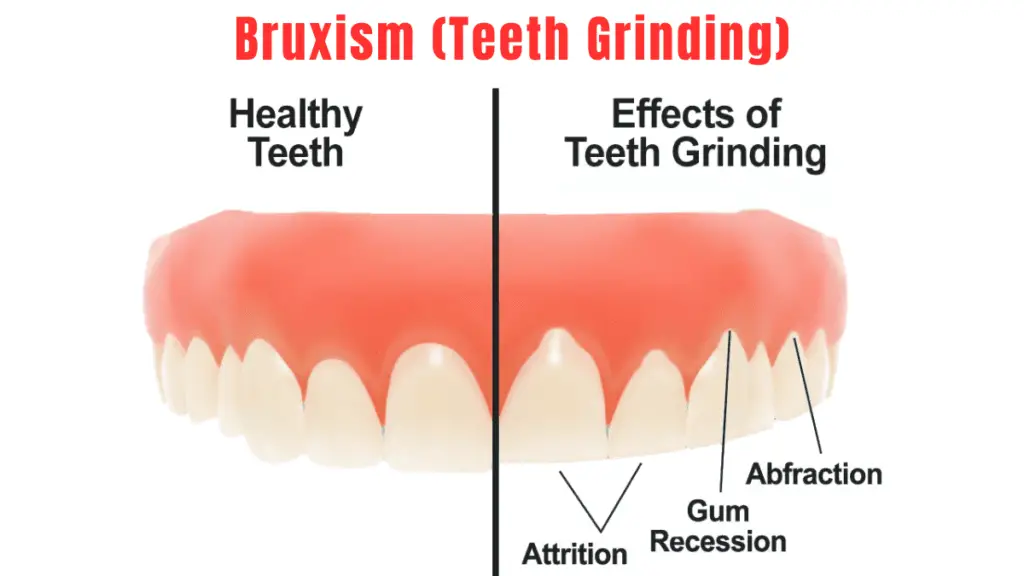
Bruxism is a condition in which you grind your teeth while you sleep. It can cause severe jaw pain when you wake up because your teeth have been clenched together all night long. If you suspect that bruxism is the cause of your morning jaw pain, talk to your dentist about getting fitted for a mouth guard or splint to protect your teeth from further damage.
Read: Home Remedies For Denture Sores
Temporomandibular Joint (TMJ) Disorder
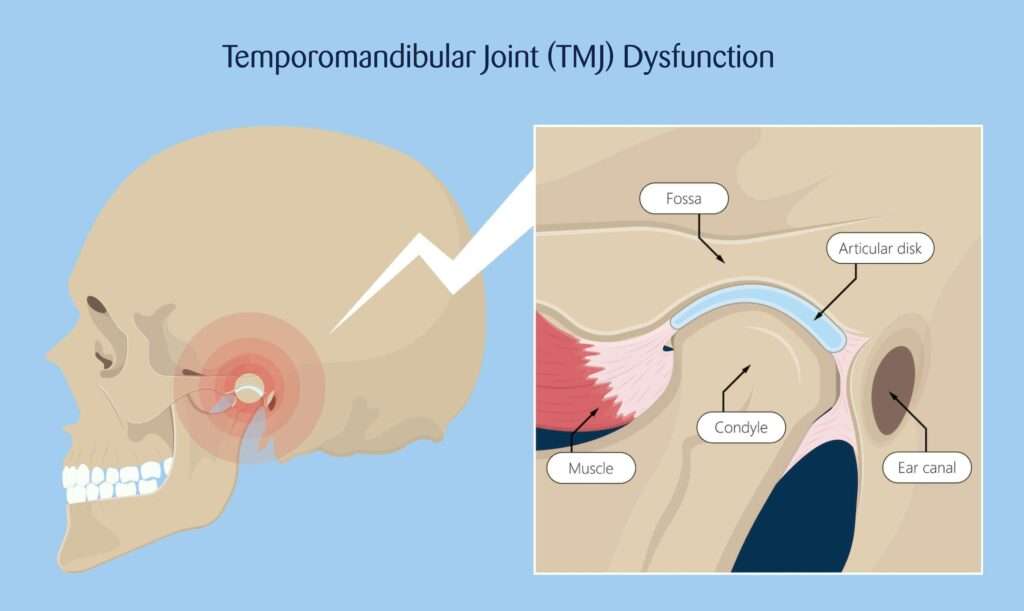
Temporomandibular joint (TMJ) disorder is a condition that affects the muscles and joints in the jaw area. It can cause pain in the face and neck as well as headaches upon waking up in the morning. If TMJ disorder is causing your morning jaw pain, talk to your doctor about treatment options such as physical therapy or medications to reduce inflammation and relieve discomfort.
Dental Abscesses
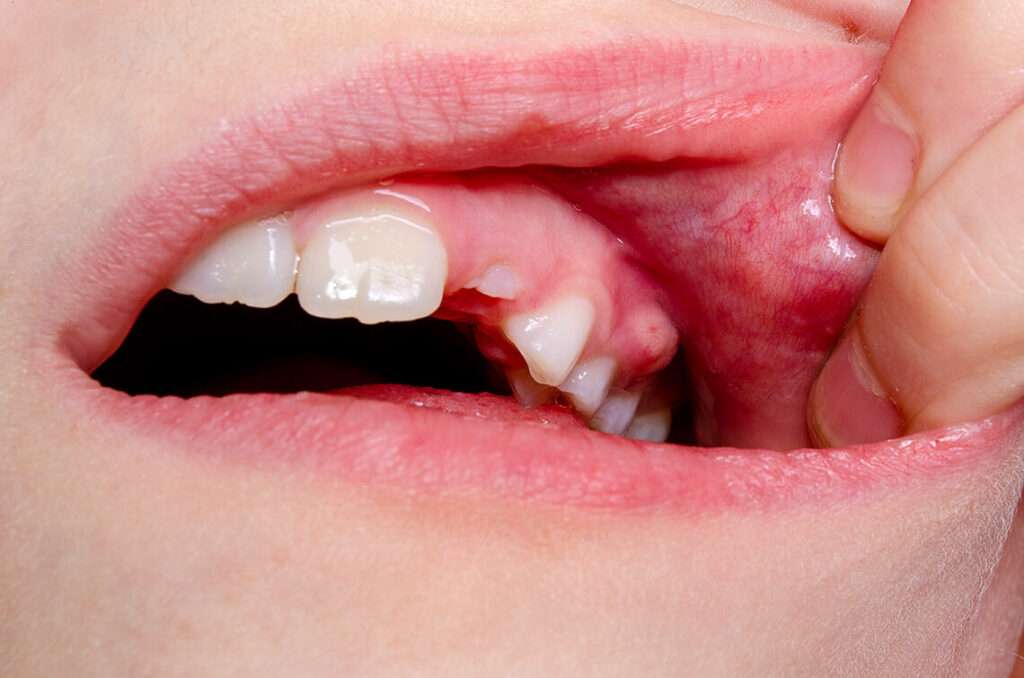
A dental abscess occurs when an infection develops around a tooth or gum tissue due to bacteria buildup. If left untreated, it can cause severe facial swelling and intense jaw pain when you wake up in the morning on one side of your face. If you think that an abscess may be causing your morning jaw pain, see your dentist right away for treatment options such as antibiotics or root canal therapy.
Read: What Does a Cavity Look Like?
Sleep Apnea
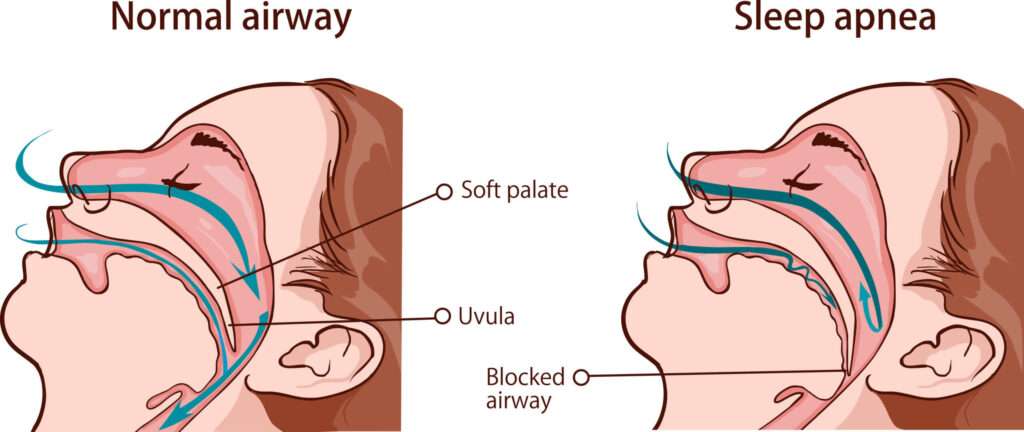
Sleep apnea is a condition in which breathing stops for periods of time during sleep due to blocked airways or other issues with breathing control mechanisms. It can lead to soreness in the jaw area due to clenching or grinding of teeth while asleep as well as oxygen deprivation throughout the body while sleeping. Talk to your doctor if you think that sleep apnea may be contributing to your morning jaw pain so they can recommend treatment options such as lifestyle changes or using a CPAP machine while sleeping.
Stress And Anxiety
Stress and anxiety can also contribute to morning jaw pain because they often lead to teeth grinding or clenching during sleep without us even realizing it’s happening until we wake up with soreness in our jaws. To reduce stress-related teeth grinding at night, try relaxation techniques such as deep breathing exercises before bedtime or practice mindfulness meditation throughout the day so that it becomes easier for you to relax before going to sleep at night.
Poor Sleeping Posture
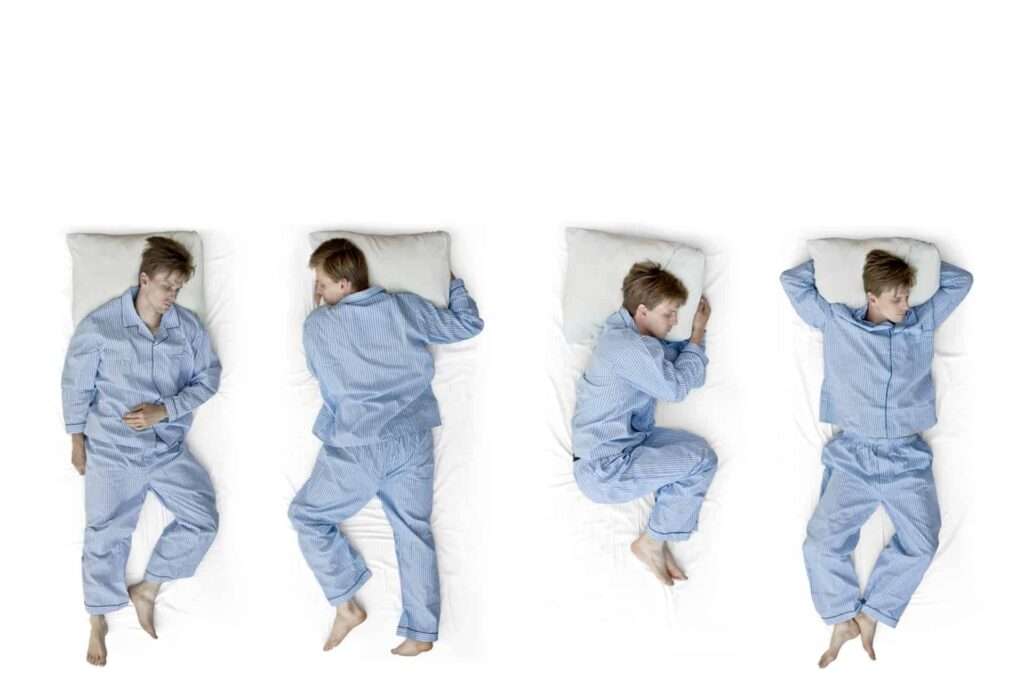
Poor sleeping posture can also contribute to morning jaw pain because it puts extra strain on our necks and shoulders overnight which then leads to tension in our jaws when we wake up in the morning due to muscle tightness from being held in an awkward position all night long. To improve your sleeping posture, make sure that you are using a supportive mattress, pillow, and blankets so that you are comfortable throughout the night. Additionally, avoid sleeping on your stomach if possible since this position puts extra strain on our necks.
Lack Of Pillow Support For TMJ
If you suffer from TMJ disorder, having proper pillow support is essential for preventing painful mornings. Look for pillows specifically designed for TMJ sufferers that provide cushioning around both sides of the head so that there isn’t any extra pressure placed on either side of our jaws overnight. Additionally, make sure that whatever pillow type you choose has enough loft so that it keeps its shape throughout the night instead of flattening out over time.
How To Prevent Morning Jaw Pain
Now that we’ve discussed some of the potential causes of morning jaw pain, let’s take a look at some tips on how we can prevent it from happening:
Practice Relaxation Techniques
Stress and anxiety can make bruxism worse so it’s important to find ways to relax before bedtime such as yoga, meditation, deep breathing exercises, or listening to calming music. Doing these activities before bedtime will help reduce stress levels which may help reduce teeth grinding at night and alleviate any associated soreness when waking up in the morning.
Use A Night Guard
A night guard is an oral appliance that fits over your teeth while sleeping that helps prevent teeth grinding or clenching at night which may help reduce any associated soreness when waking up in the morning due to reduced strain on your muscles from grinding/clenching during sleep time. Your dentist will be able to provide more information about night guards and determine if one would be beneficial for treating your symptoms.
Try Physical Therapy Exercises
Physical therapy exercises may help improve the range of motion in your temporomandibular joint (TMJ) which may help reduce any associated soreness when waking up in the morning due to physical therapy exercises helping improve muscle strength around the TMJ area. Your physical therapist will be able to provide more information about specific exercises they recommend based on individual needs.
Read: An Easy Beginner-Friendly Cardio Workout
Conclusion
Morning jaw pain can have many different causes, ranging from bruxism (teeth grinding) and temporomandibular joint (TMJ) disorder all the way through dental abscesses, sleep apnea, stress, anxiety, poor sleeping posture, a lack of pillow support for TMJ, etc. Fortunately, though, there are steps we can take towards preventing this issue, such as avoiding eating hard foods before bedtime, practicing relaxation techniques like deep breathing exercises before bedtime, etc. If none of these tips seem to help alleviate the problem, then the best course of action would be to visit a dentist, orthodontist, or doctor, depending on what underlying issue might be causing the problem. Good luck!
FAQ
How do you stop my jaw from hurting when I wake up?
To help manage jaw pain, it is important to maintain the resting position of your jaw, correct your posture, get a good night’s sleep, and use hot or cold compresses. Additionally, you can try exercises to stretch and relax the muscles in your face and neck.
Can sleeping position cause jaw pain?
Yes, sleeping in an awkward position can cause jaw pain due to the strain it puts on the temporomandibular joint (TMJ). Poor posture during sleep can also lead to tension headaches and neck pain.
Why does my jaw hurt after sleeping wrong?
Jaw pain after sleeping wrong is usually caused by straining the temporomandibular joint (TMJ). This can happen when you sleep in an awkward position that places extra stress on the joint or if you grind your teeth while sleeping.
Why did I wake up with one side of my jaw hurting?
Waking up with one side of your jaw hurting could be a sign of temporomandibular joint disorder (TMD). TMD is characterized by numerous symptoms related to the jaw and its supporting structures that cause pain or dysfunction in the area around your ear, temple, cheekbone, and lower face.












